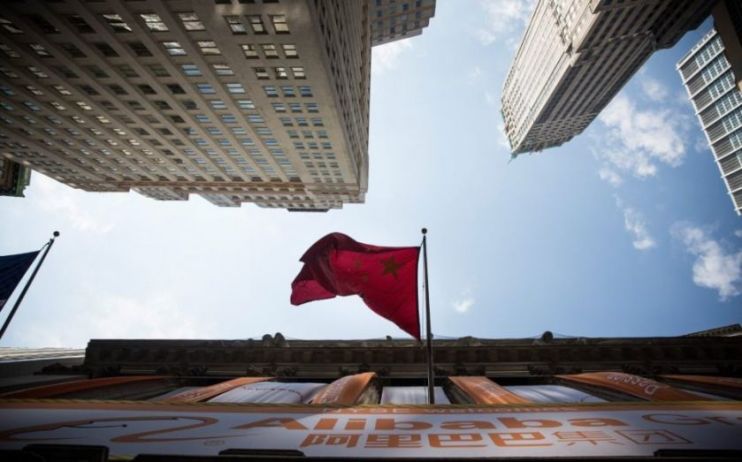China tech crackdown: From Jack Ma’s disappearance to online tutoring debacle

Chinese technology giants once seemed untouchable, with billions of profits through aggressive expansion.
But that status is now more uncertain after a year of Beijing’s sweeping regulatory crackdowns that have spread like wildfire across sectors.
The saga started last October when Chinese billionaire Jack Ma, who founded e-commerce behemoth Alibaba, criticised China for lacking a functioning financial system and slammed Chinese banks for operating with a “pawnshop mentality.”
The speech prompted Beijing to reprimand the tycoon by halting the planned $37bn public listings of Alibaba’s fintech arm, Ant Group.
Ma has not posted on social media or has rarely been seen in public since – indeed, there were even rumours of a full-scale disappearance.
Clampdown on Alibaba
The sudden absence of Ma has sparked speculation that the tycoon has paid the prices for his criticism of the Chinese government. Beijing certainly didn’t let up in their assault on Alibaba.
Last December, Chinese regulators launched an investigation into Alibaba over alleged monopolistic practices and eventually slapped a $2.8bn fine from the group after months of investigation.
And amid fears of the scale of Alibaba’s media interests, Beijing reportedly asked the company to sell its assets in the media sector. The group has stakes in Hong Kong-based South China Morning Post and Twitter-equivalent platform Weibo in China.
Alibaba’s share price has plummeted by more than one-third from record highs last October.
Meanwhile, China’s central bank forced Ant Group to restructure by cutting what it called “improper” ties with its payment service Alipay, breaking its monopoly on information and controlling the liquidity risk of its flagship fund products.
Tencent, Didi drawn into whirlpool
The crumble of Jack Ma’s tech empire was just the start of Beijing’s sweeping crackdown, as the authorities have ramped up actions on other big tech firms in recent months.
In March, Tencent, Baidu and SoftBank were all fined by China’s State Administration for Market Regulation for monopolistic behaviour.
Tencent, owned by Chinese billionaire Ma Huateng, was ordered to end its exclusive music licensing agreements with record labels worldwide amid its dominance of online streaming in the country.
And the internet group recently introduced restrictions on how long children can play online gaming after a damning editorial published in state media labelling video games “spiritual opium.”
Tencent’s shares fell by over 6 per cent after the broadside on Tuesday, hitting the lowest price year-to-date.
Meanwhile, China’s largest ride-hailing app Didi Chuxing has been banned from onboarding new users. The government investigated the company allegedly violating user privacy, just days after its Wall Street debut in late June.
News of the probe sent Didi’s share prices tumbling 20 per cent at the time and the firm’s share price now sits at almost half of its $14 IPO price.
And just days ago, China announced it woud step up regulations on Chinese companies listed overseas, urging regulators to improve regulation of cross-border data flows and security, as well as punish fraudulent securities issuance, market manipulation and insider trading.
Bans on Bitcoin mining and for-profit tutoring
China’s war on business also saw the cryptocurrency industry feel the wrath of Beijing.
Provincial authorities in Sichuan and Anhui – homes of many cryptocurrency mines – shut down mining operations under the cover of environmental concerns. Banks across the country were told not to provide crypto-related financial and payment services.
The bans resulted in trillion dollars being wiped from the global cryptocurrency market.
In addition, Beijing has targeted the country’s $100bn private education sector.
China’s State Council announced last week new regulations banning companies from teaching school curriculums to make profits, raise capital, or go public.
The country’s off-campus tutoring businesses, including Gaotu Techedu, TAL Education Group, and New Oriental Education & Technology Group Inc., tumbled on the stock market as the new rules emerged.
The move comes after China’s President Xi Jinping previously criticised after-school training as a “social problem”, saying it had increased students’ workloads and family’s financial burden and disrupted the normal order of education.
Yet, some commentators believe that the government’s measures are intended more to control disclosure and ideology.
Crackdown escalates or backfires?
Months of regulatory scrutiny have wiped out billions of dollars from valuations in the market, but Beijing has shown no sign of stopping the crackdown.
A recent editorial on the Chinese state-run media Global Times highlighted that Chinese internet enterprises had been laissez-faire about compliance, causing “longstanding problems in personal information collection and cross-border data flow.”
It added: “The barbaric expansion stage of internet enterprises has come to an end, and establishing the sense of compliance becomes an important strategy for their development.”
Meanwhile, the new regulations on Chinese companies listed overseas have already caught attention from the US administration.
The US Securities and Exchange Commission has frozen registrations of Chinese companies for public listings and formulated new rules to require Chinese companies to disclose the risks faced from Beijing.
Chinese securities watchdog soon responded to its US counterpart to ease concerns, saying the two sides should enhance communication on the supervision of China-related stocks.